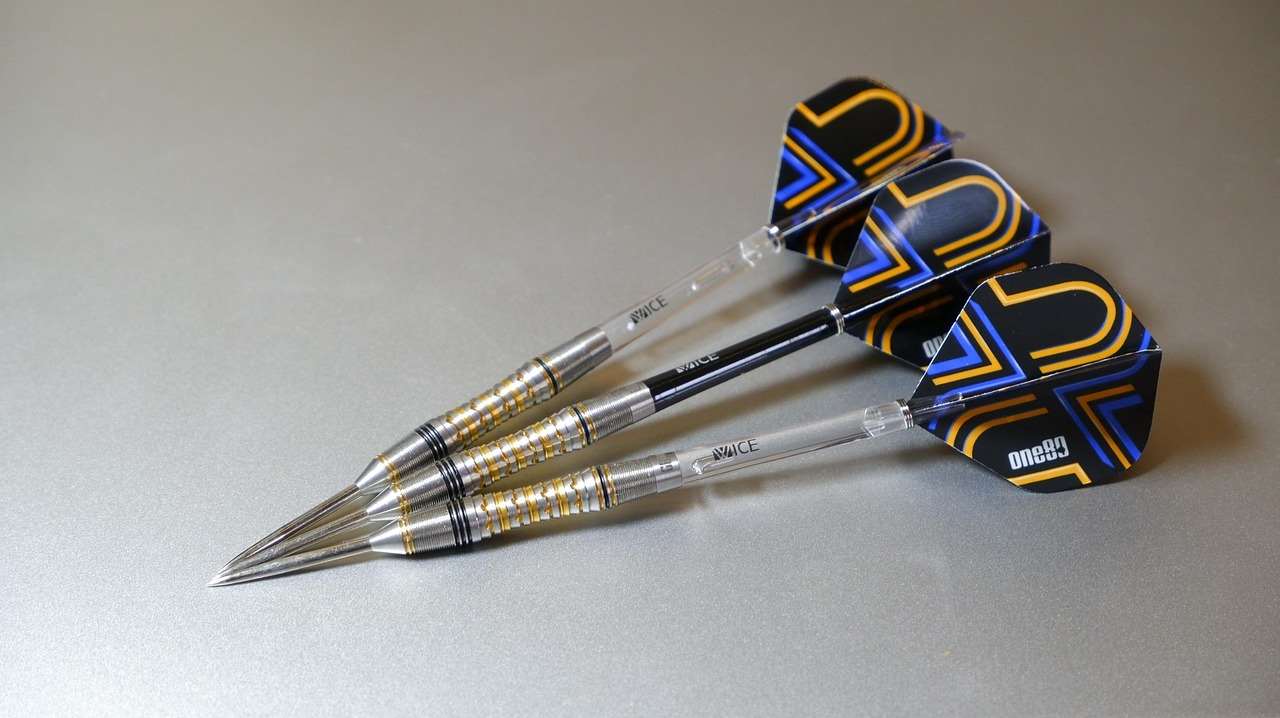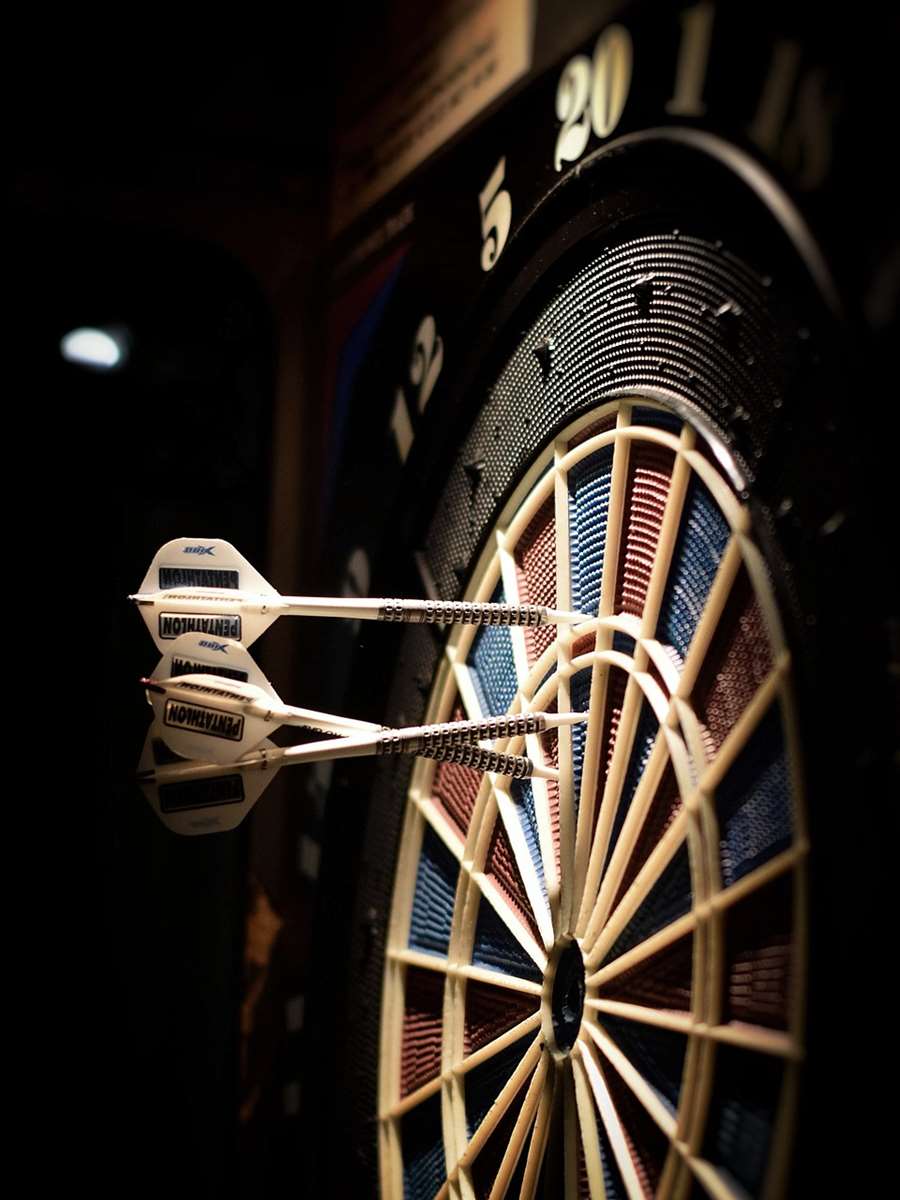Darts in sitcoms often serve as more than just background detail; they’re a shorthand for depicting characters, building atmosphere, and even driving plot points. This article explores the various ways darts has been featured in popular sitcoms, examining its symbolic roles and memorable moments.
⚠️ Still Using Pen & Paper (or a Chalkboard)?! ⚠️
Step into the future! The Dart Counter App handles all the scoring, suggests checkouts, and tracks your stats automatically. It's easier than you think!
Try the Smart Dart Counter App FREE!Ready for an upgrade? Click above!
The Ubiquitous Dartboard: A Sitcom Staple
The presence of a dartboard in a sitcom set, particularly in pubs or common areas, is practically a visual trope. It immediately suggests a casual, relaxed environment – a place where characters unwind and engage in friendly (or not-so-friendly) competition. The dartboard, often slightly worn and surrounded by errant dart holes, paints a picture of history and camaraderie. This subtle detail enriches the setting and contributes to the overall comedic atmosphere.
Think about shows like “Cheers” or “The Office” (both the UK and US versions): a dartboard wouldn’t have felt out of place. It would have perfectly complemented the laid-back, social settings. The strategic placement of a dartboard can instantly make a fictional space feel lived-in and relatable. Furthermore, playing **darts** provides opportunities for physical comedy, character interaction, and moments of both triumph and failure.

Character Archetypes and Darts In Sitcoms
The way a character plays darts, or even *attempts* to play, can reveal a lot about their personality. The skilled player, cool under pressure, might be the show’s smooth operator or underestimated genius. Conversely, the hapless player, consistently missing the board, could represent the lovable loser or the character who is trying too hard to fit in. Consider these common character-darts associations:
- The Pro: Confident, skilled, and often a bit arrogant. Their darts prowess reinforces their superior attitude.
- The Novice: Clumsy, uncoordinated, and prone to accidents. Their darts performance mirrors their overall incompetence.
- The Strategist: Calculating and methodical, approaching darts with a strategic mindset. This reflects their problem-solving abilities in other areas of their life.
- The Cheater: Willing to bend the rules to win, showcasing their dishonest and competitive nature.
These archetypes are easily recognizable and contribute to the comedic dynamics of the show. Think about the possibilities for situational humor: a character bragging about their skills, only to completely miss the board; or a seemingly inept character suddenly displaying surprising talent, shocking everyone.
Using Darts In Sitcoms for Character Development
Beyond simple archetypes, darts can be used for more nuanced character development. A character might initially struggle with the game, but through practice and determination, gradually improve. This could symbolize their growth and self-improvement in other aspects of their life. Or, a character who is normally calm and collected might become intensely competitive when playing darts, revealing a hidden side to their personality. This depth adds complexity and intrigue to the character.
Plot Devices and Darts In Sitcoms
Darts in sitcoms isn’t just window dressing. It can also serve as a crucial plot device, driving the narrative forward in unexpected ways. Here are a few examples:
- Resolving Disputes: A game of darts could be used to settle disagreements between characters, with the winner getting their way. This provides a comedic yet decisive way to resolve conflicts.
- Making Wagers: Characters might place bets on darts games, leading to hilarious consequences when they inevitably lose (or unexpectedly win).
- Forcing Interactions: Darts can bring together characters who wouldn’t normally interact, creating opportunities for bonding and comedic misunderstandings.
- Introducing New Characters: A skilled darts player could enter the scene, shaking up the established dynamics and introducing new storylines.
The possibilities are endless. The simple act of throwing darts can be the catalyst for a wide range of comedic situations, from accidental injuries to unexpected alliances.

Memorable Darts In Sitcoms Moments
While pinpointing every instance of darts in sitcom history is a herculean task, some moments stand out as particularly memorable. These scenes are often characterized by their clever writing, physical comedy, and insightful character interactions.
Unfortunately, specific episode titles are difficult to recall without extensive research, but imagine the scenarios: the perpetually unlucky character who *finally* hits the bullseye, only to accidentally knock over a shelf full of expensive liquor; or the highly competitive character who resorts to increasingly ridiculous tactics to win, much to the amusement of everyone else. These types of scenes solidify the comedic potential of **darts** in the sitcom world.
The Appeal of Darts: Why It Works in Sitcoms
There are several reasons why darts is such a popular and effective comedic device in sitcoms:
- Relatability: Many viewers have played darts at some point in their lives, making it a relatable and accessible activity.
- Simplicity: The rules of darts are relatively simple, allowing writers to focus on the comedic aspects of the game rather than complex strategy.
- Visual Appeal: The act of throwing darts, with its inherent potential for misses and mishaps, is visually engaging and lends itself well to physical comedy.
- Universality: Darts is a game that transcends cultural boundaries, making it a universally understood and appreciated activity.
These factors contribute to the enduring appeal of **darts** as a comedic tool in sitcoms.
Beyond the Board: Symbolic Meaning
Sometimes, the dartboard itself can act as a metaphor. Missing the target might symbolize a character’s inability to achieve their goals, while hitting the bullseye could represent a moment of success or clarity. The game can even mirror the challenges and uncertainties of life, with characters learning valuable lessons through their victories and defeats on the dartboard.
The use of **darts** allows writers to layer meaning and symbolism into seemingly simple scenes, adding depth and complexity to the show.

Darts In Sitcoms vs. Other Bar Games
While other bar games like pool or foosball also appear in sitcoms, darts often holds a unique position. Pool, for instance, often conveys a sense of sophistication or even danger, while darts tends to be more associated with casual fun and lighthearted competition. Foosball, on the other hand, is often used for more frenetic and physical comedy.
Darts strikes a balance between these extremes, offering a blend of skill, strategy, and comedic potential that makes it particularly well-suited for sitcoms. The relatively small space required for a dartboard also makes it a practical choice for smaller sets.
Tips for Incorporating Darts into Your Own Comedy Writing
If you’re a screenwriter or comedy writer looking to incorporate darts into your work, here are a few tips to keep in mind:
- Know the Basics: Familiarize yourself with the basic rules of darts to ensure accuracy and avoid glaring errors.
- Focus on Character: Use darts as a tool to reveal character traits and motivations.
- Embrace the Absurd: Don’t be afraid to push the boundaries of realism and create over-the-top comedic scenarios.
- Consider the Setting: Think about how the darts game fits into the overall setting and tone of the show.
By following these tips, you can effectively leverage the comedic potential of **darts** and create memorable moments for your audience. Remember that Darts Culture And Community Guide could be helpful for additional insights!
The Future of Darts In Sitcoms
As sitcoms continue to evolve, the role of **darts** will likely adapt as well. With the rise of streaming services and the increasing demand for diverse content, we may see darts being incorporated into more unconventional settings and storylines. Perhaps we’ll see a sitcom centered around a competitive darts league, or a character who uses darts to overcome personal challenges.
Regardless of how it’s used, the enduring appeal of darts suggests that it will continue to be a comedic staple in sitcoms for years to come. The game’s simplicity, relatability, and visual appeal make it a perfect fit for the genre, providing endless opportunities for laughter and entertainment. Consider how organizing a local darts league could mirror the comedic dynamics of a sitcom!

Darts: More Than Just a Game
In conclusion, **Darts in Sitcoms** serves as a versatile tool for comedic storytelling. From simple background detail to crucial plot device, darts enhances character development, creates relatable scenarios, and provides ample opportunities for physical comedy. Its enduring appeal stems from its relatability, simplicity, visual appeal, and universality, making it a perfect fit for the sitcom genre.

So, the next time you see a dartboard in your favorite sitcom, take a moment to appreciate its comedic potential and the subtle ways it contributes to the overall viewing experience. And who knows, maybe you’ll even be inspired to pick up a set of darts and create some comedic moments of your own! To keep the laughs going, think about How To Start A Darts League and get the local community involved.
Hi, I’m Dieter, and I created Dartcounter (Dartcounterapp.com). My motivation wasn’t being a darts expert – quite the opposite! When I first started playing, I loved the game but found keeping accurate scores and tracking stats difficult and distracting.
I figured I couldn’t be the only one struggling with this. So, I decided to build a solution: an easy-to-use application that everyone, no matter their experience level, could use to manage scoring effortlessly.
My goal for Dartcounter was simple: let the app handle the numbers – the scoring, the averages, the stats, even checkout suggestions – so players could focus purely on their throw and enjoying the game. It began as a way to solve my own beginner’s problem, and I’m thrilled it has grown into a helpful tool for the wider darts community.